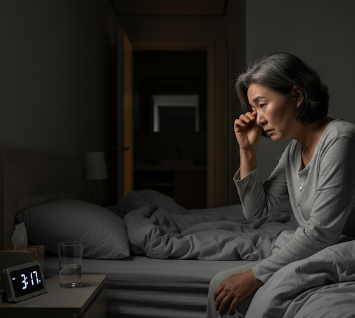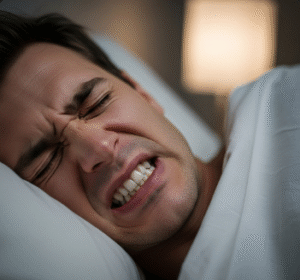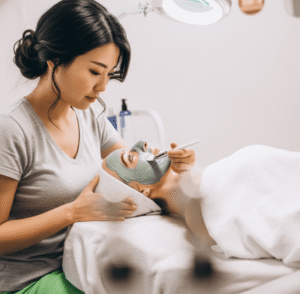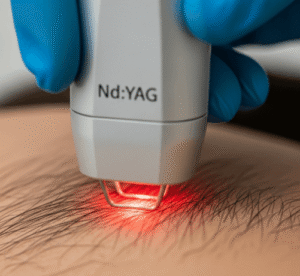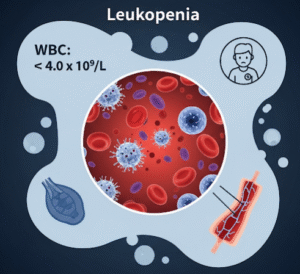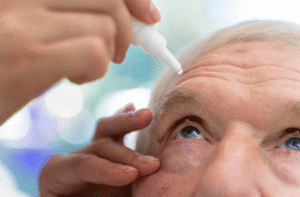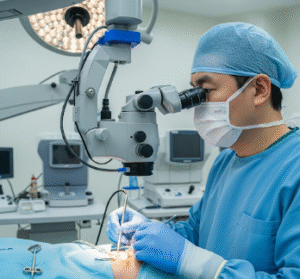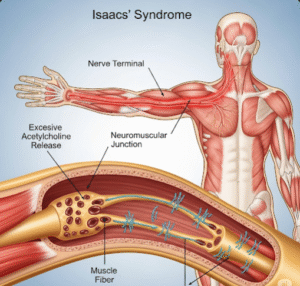Overview
Nocturia is a condition in which an individual wakes up multiple times during the night to urinate. It is a common symptom in adults, particularly among the elderly, and can significantly disrupt sleep, reduce quality of life, and lead to daytime fatigue.
In Korea, nocturia is considered both a symptom and a potential indicator of underlying health conditions, including urinary tract issues, metabolic disorders, or cardiovascular problems. Proper evaluation and management help improve sleep quality and address root causes.
Key Facts
➤ Nocturia involves waking up once or more per night to pass urine.
➤ Commonly affects older adults, but can occur at any age.
➤ Can result from excessive nighttime urine production, bladder storage problems, or lifestyle factors.
➤ May indicate underlying medical conditions such as diabetes, heart failure, or sleep disorders.
➤ In Korea, management emphasizes accurate diagnosis, lifestyle modification, and medical treatment as needed.
What is Nocturia?
Nocturia occurs when the bladder is unable to store urine overnight or when the body produces excess urine during nighttime. The condition can be classified as:
- Primary nocturia – usually due to age-related bladder changes or increased nighttime urine production.
- Secondary nocturia – caused by underlying medical conditions, medications, or lifestyle factors.
➔ Typical causes include urinary tract obstruction, overactive bladder, kidney disease, diabetes, or cardiovascular issues.
Symptoms Related to Nocturia
➤ Frequent awakenings during the night to urinate.
➤ Difficulty falling back asleep after urination.
➤ Daytime fatigue, irritability, or drowsiness due to poor sleep.
➤ Increased urgency or discomfort in the bladder.
➤ Associated symptoms may include swelling in the legs, excessive thirst, or changes in urine volume.
Causes / Possible Causes
Urinary Causes
➤ Benign prostatic hyperplasia (BPH) – enlarged prostate in men compressing the urethra.
➤ Overactive bladder – frequent contractions causing urgency.
➤ Urinary tract infections (UTIs) – irritation leading to frequent urination.
➤ Bladder obstruction or stones – preventing complete emptying.
Systemic Causes
➤ Diabetes mellitus – increased urine output due to high blood sugar.
➤ Diabetes insipidus – hormonal disorder causing excessive urine production.
➤ Heart failure – fluid redistribution during sleep increases nighttime urination.
➤ Kidney disease – impaired renal function affecting urine concentration.
Lifestyle and Behavioral Factors
➤ Excessive fluid intake in the evening.
➤ Caffeine or alcohol consumption before bedtime.
➤ Certain medications, including diuretics.
Sleep Disorders
➤ Obstructive sleep apnea – fluid shifts and hormonal changes contribute to nocturia.
Risk Factors
➤ Older age – bladder capacity and renal concentration ability decline.
➤ Men with prostate enlargement.
➤ Individuals with cardiovascular, kidney, or endocrine disorders.
➤ Lifestyle habits like evening fluid intake, alcohol, or caffeine consumption.
➤ Sleep disorders such as sleep apnea or insomnia.
Complications
If untreated, nocturia can lead to:
➤ Chronic sleep deprivation, affecting memory, mood, and daytime functioning.
➤ Falls and injuries – especially in the elderly, during nighttime trips to the bathroom.
➤ Reduced quality of life, including social and occupational impairment.
➤ Worsening of underlying medical conditions if nocturia is secondary.
When Should I See My Doctor?
Medical consultation is recommended if:
➤ Nighttime urination occurs more than twice per night regularly.
➤ Associated with pain, blood in urine, or urinary urgency.
➤ Symptoms persist despite lifestyle modifications.
➤ There are signs of underlying conditions such as diabetes, heart disease, or kidney problems.
➤ Sleep is frequently disrupted, causing daytime fatigue and cognitive impairment.
Care and Treatment
Lifestyle and Home Measures
➤ Limit fluid intake 2–4 hours before bedtime.
➤ Avoid caffeine and alcohol in the evening.
➤ Elevate legs during the day if swelling contributes to fluid redistribution.
➤ Maintain a consistent sleep schedule and sleep hygiene practices.
➤ Monitor urine output and patterns to track symptoms.
Medical Treatments
➤ Medications – antimuscarinic agents for overactive bladder, alpha-blockers for BPH, or diuretics timed earlier in the day.
➤ Treatment of underlying causes – controlling diabetes, heart failure, or kidney disease.
➤ Behavioral therapy – bladder training and pelvic floor exercises.
➤ Surgical options – for severe prostate enlargement or structural urinary tract issues.
Preventive Measures
➤ Manage chronic diseases like diabetes and hypertension.
➤ Maintain healthy body weight and cardiovascular health.
➤ Regular medical check-ups to detect early signs of nocturia-related conditions.
➤ Avoid late-night snacks and excessive fluids before sleep.
Treatment Options in Korea
Korean hospitals and clinics offer comprehensive evaluation and management of nocturia, including:
Diagnostic Services
➤ Urinalysis and urine culture to detect infection.
➤ Blood tests for kidney function, blood sugar, and electrolytes.
➤ Prostate evaluation for men – ultrasound, PSA testing, or physical examination.
➤ Bladder function tests – urodynamic studies or post-void residual measurement.
➤ Sleep studies for suspected obstructive sleep apnea.
Therapies and Supportive Care
➤ Prescription medications for bladder control or prostate enlargement.
➤ Lifestyle counseling for fluid management and sleep hygiene.
➤ Minimally invasive procedures or surgery for structural causes.
➤ Integrated care involving urologists, nephrologists, cardiologists, and sleep specialists.
➤ Patient education on monitoring nocturia patterns and preventing complications.
✅ In summary: Nocturia, or frequent nighttime urination, is a common but potentially disruptive condition. Causes range from lifestyle factors and bladder disorders to systemic diseases. In Korea, accurate diagnosis and individualized treatment ensure symptom relief, improved sleep quality, and overall health.

